#bias is the human condition
Explore tagged Tumblr posts
Text

new faction coming
#procreate#type : fanart#south park#sp#south park the fractured but whole#bias bcs my fave event is guide ahead so stan's condition is basically just like cecilia... also because randy is defo a sarkaz#sp tfbw#kyle broflovski#eric cartman#stan marsh#kenny mccormick#the coon#toolshed#mysterion#human kite#mysterion is a harmacist but only to himself#honestly… gonna rework cartman’s outfit bcs i dont really like it…#idk what class is kite… i was thinking caster but a supporter also make sense#if one of them is the walfare operator… who’ll that be? my guess is cartman#mysterion for the 6* banner with dynamic art e2.. that will fire#yeah make the poorest kid the expensive one as always#kinda want to make them a keychain tho#sp kyle#sp cartman#sp stan#sp kenny#finished_works
252 notes
·
View notes
Text
hot take: attempting to ”cure” fatness as a treatment plan for a medical condition is bs.
First of all, if you are fat and develop some sort of a disease or condition, your weight is always blamed first. Which is like assuming all smokers with health complications developed those conditions because of smoking. And it’s even worse for fat people because fatness can be blamed for so many different conditions. A medical worker won’t even entertain the possibility of a fat person having naturally developed a disease, even though many thin and healthy people also develop diseases for no reason other than genetics.
And then they’ll recommend weight-loss. It’s like a freaking magic solution for them, even though they don’t actually even know whether the condition was actually just genetic and that the person would have developed it regardless of weight. And as we all know, weight loss consists of dieting and exercise..
But wait, there’s research on how exercise is practically useless for weight-loss (like c’mon, I was taught at school that exercise only contributes to about 10% of body’s energy consumption, I don’t think this should be a shocking fact) and also research on how almost all diets fail…. And there’s also multiple research papers on how most people who end up losing weight will regain it in a few years….
So like, what the f*ck are we doing? Medical professionals will refuse to properly treat fat patients for e.g heart problems before we lose weight, but literally all research is pointing towards the fact that weight-loss isn’t a long-term thing. And we know that a lot of conditions go undiagnosed in fat people just because medical professionals don’t even bother to search for any condition just because they act like being fat directly causes some symptoms??? Which is like not even true??
And moreover, there’s research saying that constant dieting leads to some of the same conditions that are often attributed to being fat.
AND weight-loss is not healthy for anyone. I’m sorry that the world lies to us and makes us think it’s normal, but a shit-ton of exercise combined with starving is not okay. The fact that medical professionals can recommend fat patients to starve is so wild.
They believe fat is not a part of our bodies and therefore think it’s okay to put us through weight-loss and dieting even though they wouldn’t recommend the same thing for thin patients, and even though they don’t even know if fatness is even what caused the condition. It’s extremely unethical to recommend some people way eat below the daily recommended amount, and it’s also unethical to encourage patients to change their bodies drastically.
If you as a medical professional think of fat as a disposable thing instead of a part of your patients’ bodies, then that’s not okay and everyone would probably realize how it wasn’t okay if we just thought about it for two seconds and realized how gross it is to recommend others’ to change their bodies.
Also the attitude some medical professionals give fat people is so unprofessional and condescending. It’s like they think we’re doing everything wrong just because of our weight meanwhile they are doing everything right, because they’re either thin or actively attempting to lose weight themselves.
#fat liberation#fat acceptance#anti fatphobia#fat is not a bad word#anti fat bias#fat positive#fat positivity#being fat#fat is beautiful#fatphobia#medical mistreatment#medical professionals#medical conditions#medicine#medical fatphobia#Treat fat people like humans goddammit#medical care#fat person#fuck fatphobia#end fatphobia#fat activism#fat people#pro fat activism#fat activist#activism#activist#social justice#stop discriminating#discrimination#Fatphobia kills
10 notes
·
View notes
Text
genuine, for real, question, especially for neurotypical folks. do you too feel completely drained after a full work day and struggle to find the motivation to do more than (1) Adult Responsibility after every work day and so your off days are crammed with all the shit you failed to do before that you definitely should have? Do you find the idea of also having an active social or dating life on top of just trying to get through the fucking day utterly exhausting? If you’re a parent, how are you working full time and also being a parent without wanting to kill yourself constantly or just going insane? If you are childless and want kids, are you also utterly terrified you’ll be an incompetent parent because “seriously I can barely handle myself much less a small human who depends on me??” or is this just a me problem
#i am once again asking: is this the human condition or is it a personal problem#shut up keri#adulting#neurodivergent#????#adhd#<- so believes my therapist. I think I may just have brain worms from the internet tbh#neurotypical#I know the sample bias on this post is gonna be crazy but surely there’s some folks on here who are not ND lol
9 notes
·
View notes
Text
my ears aren't trained enough to spot em all (except the Obv ones) but these references and callbacks to prev sagas are making me ascend i want to shed my mortal coil and get mixed into the music like a beaten egg
#didnt keep count of how many times i got shivers god i love musical theater#hearing warrior of the mind and legendary leitmotifs in well be fine#telemachus having my most fave songs...mayhaps recency bias#i can remember just subsisting off the draft versions for the last year and now that its here im in disbelief#i mean its deffo good that epic's production process is so well documented jrh is doing what most directors wouldnt be able to do#(side eyes dave malloy's moby dick)#(wdym the musical was too fucking long mr. malloy please i beg give me life-changing thought-provoking lyrics about the human condition pls#tbh ive had delulus of going to japan or korea to watch waitress or hadestown#like i wont understand the dialogue but i knew those songs by heart dammit#OUGH im remembering when korea was gonna put on a production of the great comet (sobbing crying weeping)#3am!dio back at it again with the thoughts#dellet-asides
10 notes
·
View notes
Text
that scene from The Last Unicorn where shes all brokenly like "i'm a unicorn. I'm a unicorn / I can feel this body dying all around me" really fits thematically with.. like.. all the main characters
#rafayel#zayne#xavier#mc#mc being called a unicorn by the ppl who experimented on her really adds to it lmao i wonder if the writers also knew or it's coincidence#fits mc the most and then raf since hes a lemurian whos struggled with having to assimilate into human society & his longevity is threatene#and theres zayne with... his condition. and xavier with his potential dying rn although hes more resigned to it? but#yeah mostly mc and raf. not even due to my bias. although maybe my thinking so is affected by it#glubabbles
1 note
·
View note
Text
The way that Elizabeth Bennet is tricked by Wickham is so important because it's confirmation bias and we are all so susceptible to it. Of course Elizabeth ate up everything negative Wickham said about Darcy with a spoon, it's what she already thought! Wickham checked first. Once he knew Elizabeth hated Darcy, he fed her ego by letting her know that not only was she right, but she was special and smart for seeing through Darcy's wealth and status.
"The world is blinded by his fortune and consequence, or frightened by his high and imposing manners, and sees him only as he chooses to be seen." - Wickham, Ch 16
The world is blind, but not Elizabeth! Not with her supreme powers of perception and character reading. She sees the "real" Darcy...
And then of course, the best warning Elizabeth gets about Wickham (and I'll admit it's not a great one) is from Caroline Bingley, a woman she detests (I cut out the snobbery around it):
"Let me recommend you, however, as a friend, not to give implicit confidence to all his assertions; for, as to Mr. Darcy’s using him ill, it is perfectly false: for, on the contrary, he has been always remarkably kind to him, though George Wickham has treated Mr. Darcy in a most infamous manner. I do not know the particulars, but I know very well that Mr. Darcy is not in the least to blame; that he cannot bear to hear George Wickham mentioned..." Caroline Bingley, Ch 18
Elizabeth's judgment isn't perfect, it's highly subject to bias. Jane Austen's understanding of the human condition was amazing. She set Elizabeth's deception up in such an accurate way it could be in a modern social psychology textbook. Of course she believed Wickham; of course she discounted Caroline, it's human nature.
#jane austen#pride and prejudice#elizabeth bennet#confirmation bias#we love to be told we are right#it's our favourite thing as like a people
1K notes
·
View notes
Text
men and boys are increasingly anti-intellectual and this is primarily because of male supremacist culture. because men are the ultimate status quo, male supremacy can never be examined as an ideology. they are mentally coddled by privilege in every way. even in school they are not challenged to critique or question male supremacist bias. this reflects in their art, debate and writing. intellectualism encourages humanization of human issues. it requires introspection. ego makes introspection and reflection nearly impossible and society inflates the egos of boys from day 1. this is why most men can be professors or religious scholars and still remain so fucking obtuse about the basic mechanics of human evil in society. their analyses of social evil is infantile, simplistic and delusional. because they censor any damning data against the elite class of men. they will spout thought terminating cliches in order to shield themselves from the reality of male violence and how it flourishes directly due to male culture. so there is no reflection or self examination, no exposure to relevant data, which can only trap them in intellectual dishonesty and hypocrisy. anti-feminists are always anti-intellectual because they must take male supremacy, violence and privilege for granted. they then spend the rest of their lives wondering at the dissonance they never seem to quell and call it an unanswerable mystery of the human condition.
1K notes
·
View notes
Text
It finally happened. I met a new, they've been here for a year but I've never met them before, doctoral student in my discipline who is defining their research by their activism, which in turn is showing how ignorant they are of our field and how much they want to manipulate it to support their conclusions. Furthermore, it also shows how ignorant they are of entomology. I'm really hoping their committee members and PI will address this before the student makes some serious mistakes and either causes their own name to be black listed as a scientist willing to compromise experiments for the sake of their own bias or they waste an excessive amount of time chasing a conclusion they want that isn't supported. The research interest in question is regarding development rates of forensically relevant blow flies on large and small corpses and determining if this influences development. The problem here is that we've done large, medium, and small carrion and corpse studies in the past and sort of answered this already. The conclusion is that there is a critical resource threshold that prevents an over abundance of oviposition on a resource and thus prevents prolonged development and/or death due to an inadequate amount food.
Now, there's no issue with repeating studies from one region and environment and doing them in a completely new one. This allows us to confirm and adjust our datasets based upon local environmental influences on local insect populations (i.e. differential development times based upon locality).
However, know that pigs mimic humans in their decomposition and thus we get the same blow flies. If you move to a different animal then you tend to get different species of blow fly based upon the size and species of the new carrion host. There are blow flies that are more inclined to feed and reproduce on birds, rabbits, and so on.
There are a variety of studies out there where scientists just beginning to dabble in forensic entomology put out something like a dog carcass for research purposes. They almost always end up with a community of insects that maybe has 1 or 2 species out of, let's say, 10 that are actually used in forensics and the rest are not because they don't feed on human corpses. So they make their conclusions based upon a dog study and then get confused when their data does not resemble the data from human/pig studies.
Simply put; it's a noobie mistake.
Which is fine if you're an undergrad or just starting the forensic entomology discipline and research in your country.
But for someone to be in the USA with access to experts and making this level of mistake is concerning.
Now why are they actually doing this?
They said to me, and I quote, "Because they're killing kids in Gaza".
And this shows where the bias and ignorance interplay.
Let's say that they continue with the size differential study(ies) that they want to do. We are in the southern United States. The species of blow flies we have here and the environment we are working in is entirely different. Any conclusions that are the results of this research have no impact or bearing on determining the development rate of blow flies half way across the world. The environmental conditions alone are so different that any application would be shoddy and questionable at best, let alone the fact that there are complete different subfamilies over there which we are not familiar with nor have been studied to the extent that species over here have.
So either this student has to mimic the environmental conditions for the field research they want to do and bring in foreign species or they're going to do the noobie stuff and put out animal carcasses of different sizes and have native species colonize them. The former is impractical and nearly impossible, the latter has been done.
But they want their research to be applied to Gaza because "it means so much to them" (keep in mind this student has no connection to Israel or Palestine at all).
And this is where the issue with their activism and bias comes into play.
The fact that any research they do here with native species has little to no application to a region of the world with a completely different environment and insect community has not occurred to them. A doctoral student. At best they create a model that can be mimicked by entomologists in the region, but that's it. This is concerning and indicates that the activist thinking is superseding the scientist, which in turn means their research can potentially be compromised to support the conclusions they want instead of interpreting the results for what they actually mean.
This is a type of Type I error and we've seen it a lot with scientists who want to support a particular narrative.
But at the end of the day I'm literally just flabbergasted that a doctoral student in entomology is wanting to repeat studies we've already done, by people they know no less, apply said studies and conclusions to a foreign conflict and region, and no one on their committee has pointed out the issues to them.
228 notes
·
View notes
Text
Understanding a Scientific Article
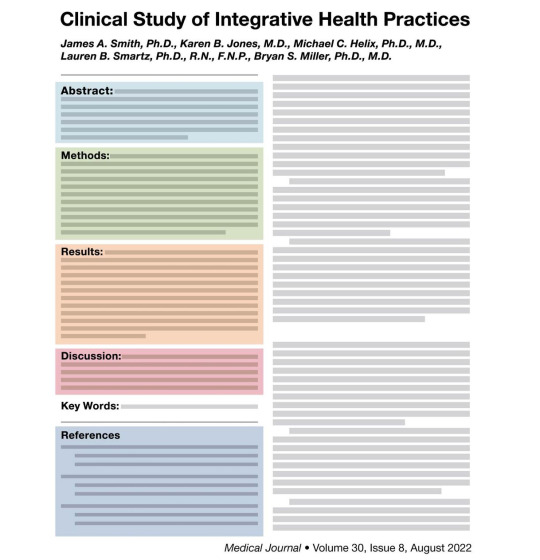
Abstract
A brief description of the key points you will find in the paper. This can include:
Objectives: What questions the researchers hope to answer.
Methods: What type of study the researchers used to conduct the study.
Results: What the researchers discovered.
Discussion/conclusion: What the results mean and/or the author’s interpretation of the results.
Look at the date of the study.
Was it conducted in the past year? 5 years? 15 years? As new information is learned, scientific standards and techniques change, and practices evolve.
New research may support results from older studies as well as lead to new methods to diagnose and treat conditions and diseases.
New research can, at times, also contradict other research, which may require additional research to explore and resolve these differences.
Research can separate the good results from the bad results. In this way, the scientific method is self-correcting, which is reassuring.
Looking at the date can provide insight into how the study fits into the larger evidence base on a particular topic.
Methods
Detailed information on the type of research or approach used, the study’s design, the participants, the measurements or outcomes recorded, and steps taken to avoid bias.
Types of Research
Basic research: Scientists ask questions about theories or concepts, and test hypotheses to improve scientific knowledge. It’s the first step in any research.
Translational research: Researchers build on the observations and results of basic research to develop and test new ways to prevent, detect, or treat conditions and diseases.
Clinical trials: Well-planned clinical trials are done with people and may vary in size and type. Clinical trials give the clearest information about whether a treatment or a lifestyle change is effective and safe in humans. However, because they are complicated, lengthy, involve many research participants and can be very expensive, they are usually done only after smaller preliminary studies have been completed.
Systematic reviews and meta-analyses: When researchers review each other’s research to check for quality and look for converging evidence among studies, they may write systematic reviews and meta-analyses. These look at different studies on the same topic. When many studies come to the same conclusion, it helps us know that the results are reliable and valid.
While all research studies are important and contribute to our knowledge base, clinical trials are the types of studies you probably hear about most often in the news. They can have the most immediate impact on improving health and treating disease.
Results
What the study showed.
The data, summaries, and analyses of the study are presented in this section. Tables, graphs, and charts that show the results are often included.
To better understand the results, you can ask these questions:
How do these results compare with previous studies?
A single study rarely provides a final, definitive answer.
Repeating a study using the same methods with different volunteers and investigators helps us know that the results are reliable and valid.
What do “statistically significant” and “clinically significant” mean?
Statistically significant means the differences observed between the groups are real and not likely due to chance.
Clinically significant is a measure of the size of the effects observed in the study, which shows the impact of the treatment.
A study can find statistically significant differences between two treatment groups, but the differences may be so small that they are not clinically significant in terms of usefulness for patients.
Are there potential conflicts of interest?
Did the study sponsor or the investigators have any financial or reputational "stake" in the outcome?
Most medical journal articles include information about relevant financial relationships.
Discussion
What the results mean.
This is where you can often find out how the study relates to your own health.
This section includes the authors’ explanation of, and own opinions about, what the results mean.
Since the conclusions are the authors’ own, others may or may not completely agree with their explanation of the results.
References
Previously published articles the authors used to review what related research was done before, to help design the study and interpret its results.
Source ⚜ More: Notes & References ⚜ Writing Resources PDFs
#research#writing reference#dark academia#writeblr#studyblr#spilled ink#literature#writers on tumblr#writing prompt#light academia#science#writing resources
154 notes
·
View notes
Text
I want a human zoology textbook.
Zoology, as in the study of animals. Like, a study of how humans work, done by an author that is not human.
I specifically want this for a couple reasons:
1. Descriptive, not prescriptive: don't tell me what the author thinks humans should do or how they should be. Tell me what they do. Observationally!
2. No bias towards "nature". I don't particularly care what the author is imagining humans are like in some "garden of eden" unfallen state. I want it to reference how humans ARE.
3. No morality applied to this! What do humans DO, not what you think they should do, or how they should be. And most importantly, no self-censorship in order to avoid offending some of the humans that disagree with ways people live.
And the reason I want this is because of how biology textbooks/wiki pages get written, where even if they try to be progressive they're still written from this weird perspective where they're explaining based on old ideas and the progressive stuff gets a footnote.
Like it'll be "humans have two genders, male and female. This is determined from their chromosomes, XY for male and xx for female."
And then you scroll past two pages for men and another two pages for women, and then it has one subsection that covers non-binary people and intersex people. And it's like: well then integrate that into your main statement!
It's like the author's worldview is still "there's two genders and everyone is born as one" but they've been forced to accept there are some weird exceptions but the core worldview is unchanged. And it's understandable! Wrong, but understandable: the grew up in a world that is quite strong on the "there are only two genders" ideology and doesn't like to remember that intersex people exist.
But like, imagine if you tried to do this as a zoologist. You're like "hey, all bees are female!" and then someone points out the rare male drones and they're like "oh okay I'll update my zoology textbook."
And now it reads:
All bees are female. Most are workers, and one is the queen.
(a couple sections go pass)
Drones: recent science has discovered that some bees are born male. These rare exceptions live short lives where they fertilize a queen and then die.
And it's like, no? Drones are very important to how a hive lives and they can't survive without them?
And we're constantly doing the same thing to humans and it's just bad science. Like, sure, maybe you could have the theory that "humans come in two genders: male and female" but as soon as you see one non-binary person, you have to discard that theory: it has been proven false! It's like not believing in other galaxies after Henrietta Swan Leavitt figured out how Cepheid Variables worked.
Add to that the "nature" thing. Like, you can make a sort of argument about nature vs artificial settings for a lot of species: the whole alpha/beta wolf thing came about because it turns out wolves act differently in captivity compared to the wild, so it makes sense to study how the vast majority of wolves live, not a small group you stuffed into a small area with unusual conditions. It's like saying the lifespan of goldfish is under 5 minutes, based on your study of them in this dry box you put them in.
But humans are different: we are tool-users who build new environments for ourselves. And while you can talk about how humans living in different environments act differently, it doesn't make a lot of sense to call one of them "artificial". All of them are made by us, and humans always do this. This means all environments are natural (because building environments for ourselves is what we naturally do) and all environments are artificial: we always alter our environments to better suit us! That's one of the things we naturally do!
And as for morality, it's about not ignoring things humans do regularly because you think it's weird or you think they shouldn't.
Like that tweet where someone pointed out that lots of species can change gender. Clown fish are a big one, some frogs, a couple birds, some lizards, and humans.
And people often have an immediate knee-jerk reaction of "that doesn't count!" for the last entity in that list. Why? Because we do it (usually) with clothes and makeup and medication, instead of just "naturally"? Bullshit. We're naturally TOOL USERS. Of course we use tools to change gender. We use tools to do EVERYTHING. That's natural for us.
So yeah. I think it'd be refreshing and enlightening to have a zoology textbook written about humans with this detached non-human perspective. An unbiased description of what humans are and do, rather than one irrevocably tinged with ideas of what humans should be and should do.
Basically I want to load up Vulcan Wikipedia and check the "Humans" article.
690 notes
·
View notes
Text
I can say with 100% confidence that I would hate Sorn if the actor playing him wasn't so fine. Look at this pretty bitch. I ain't saying no to making out with a man who looks that's good, especially when that man is fine ass Boat.
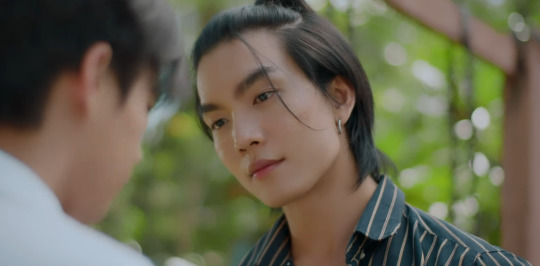
So I'm super proud of Jun for standing on his anger throughout the tenth episode of My Stubborn and proving he is not Captain Save A Hoe. Jun showed Sorn that if he didn't want to enjoy the consistently delicious meals at home, then Sorn can be community property.

All's I know is Jun is God's strongest solider for saying no multiple times and making his boundaries clear because it couldn't be me. Not ever. Never. *bites bottom lip*

But Jun repeatedly rejecting Sorn allowed us to see Sorn being messy in a light color and showing up at Jun's job to beg him to come back. Sorn changed his entire color in hopes of getting Jun back, yet he was denied! *eyooo*

But before figuring out where Jun was, Sorn had lost his mind (and his color) being isolated in his own little box of misery since only Champ was sparing him any pity.

Honestly, if it weren't for Champ asking Tai to give Sorn some grace, I think from the look Tai was giving Sorn, he would've packed up all of Sorn's shit and had him in Vietnam before Sorn could even shed one more tear over Jun.
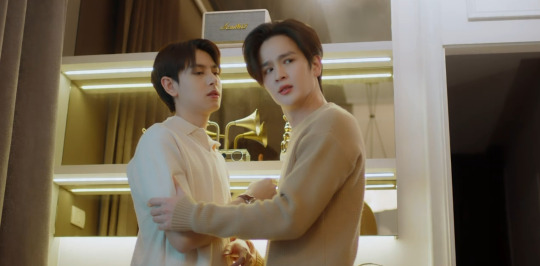
But I'm sure Sorn won back some brownie points with Tai after telling him to get it in first; then, lock up his place. That's true friendship. Even though they are at odds, Sorn didn't question his friends' situationship and even encouraged them to have that good sex in his air-conditioned house before exiting.

However, him showing up at Pink Person Penny's place unannounced scored him no points with June, so I appreciate that Penny was looking at him like the crazy fool he is.

The girls probably got that good-good too after Sorn left, so basically, Sorn is the only one not getting any. *jajajajaja*

Which means Sorn was miserable back in his black when he finally caught a glimpse of Jun after weeks of not seeing him.

Yet Jun proved that he is stronger than a K-pop stan when their bias goes into the military because he did not budge!
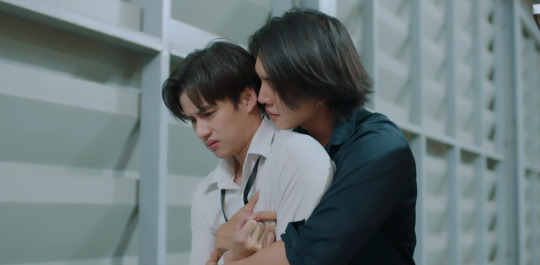
There were several times that I thought this Heavenly Human was going to show Sorn some mercy, yet he continually twisted the knife deeper into Sorn's heart.

And that little sadist on my shoulder screamed "MORE!" like I was a spectator in Ancient Rome watching a champion gladiator getting torn to shreds. Seeing men cry from their own stupidity heals me.

But I'm going to give Sorn one single kudo for talking to Jun's boss, so Jun wouldn't get in trouble for Sorn starting his bullshit during work hours, which shows that he learned from their incident with June to not mess with Jun's internship.

Then Sorn returned the next day in black to beg Jun for kisses, but Jun basically told him the only way Sorn was going to ever kiss him again was if he kissed his ass while he walked away, and Sorn took that as a personal challenge.

(at that job just looking like an indie rock album cover)

Then Jun death gripping that white binder between him and Sorn was the epitome of leaving room for Jesus.

But eventually, love won, and Sorn showed he was dedicated to giving his heart lollipops to Jun.

And Sorn continued to prove he is just a pendejo in love as he showed up in red to rescue his man from the girlies and aunties lusting after his wounded body.

I'm going to give Sorn another kudo too because when he was trying to guilt trip Jun (who still did not give that man any relief) when he was fully back in his color and element, no matter how extreme he was being in his fictional scenarios, he still made sure that Jun was with him. He would be late every day seeing Jun. He would get fired from his job and couldn't get Jun his favorite foods. He would have to move home and fly back every weekend to see Jun. He would ruin his life for Jun.

But he just needed to know if his Heavenly Human was in this with him (and not moving on to Jom).

qué pobrecito

His Heavenly Human was annoyed and probably questioning what he did in a past life to fall in love with this moron in this life.

But the simple fact is that Jun is in love with Sorn and, thankfully, Sorn is now fully aware that he is in love with Jun, and has been for years. The pink = 💕love💕 lighting tells me so.

And they ended the episode looking ready to get married in their respective colors.

(even though Sorn still has a problem with listening and consent, but I cannot expect this sonso to be perfect after a lifetime of fuckery; gotta therapize the fuckboi out of him. Frankenstein's monster was not built in a day or whatever the Romans say)
. . . But hey, they are wearing each other's color next week!

#my stubborn#my stubborn the series#the colors mean things#episode ten#long post#color coded boys in love#sorn is the worst#but I love him dearly#I'm making a lot of excuses for that idiot#but he is trying#also . . . he is played by Boat so I'm blinded by the pretty
131 notes
·
View notes
Text
She-Ra PoP vs Arcane S2
Physically disabled character considered inferior by his society, abandoned instead of being helped

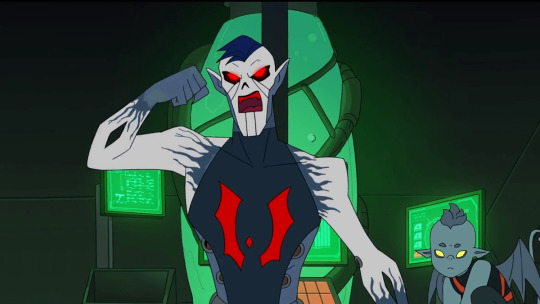
Technological genius who benefits from having a partner
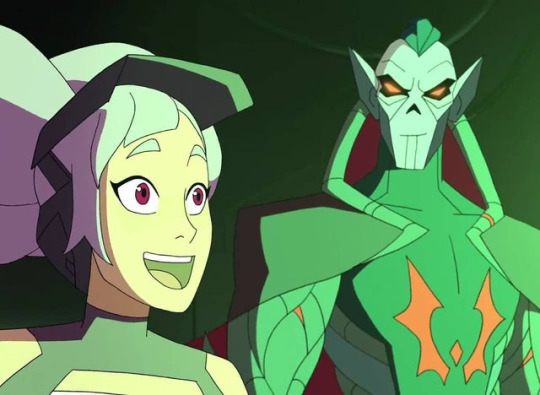
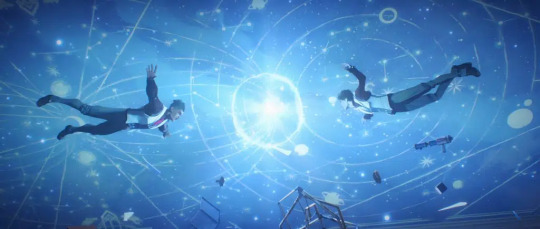
Uses technology to improve his health and quality of life
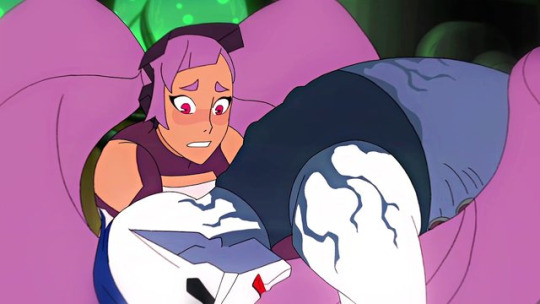
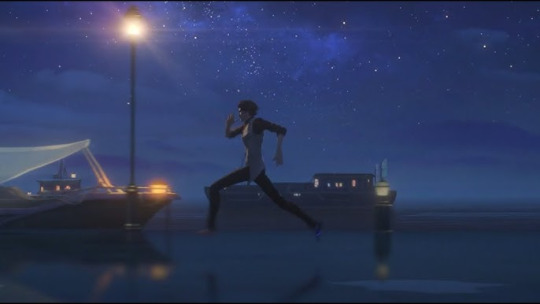
Becomes fundamentally altered by a force outside his control (with Christian and cult references)
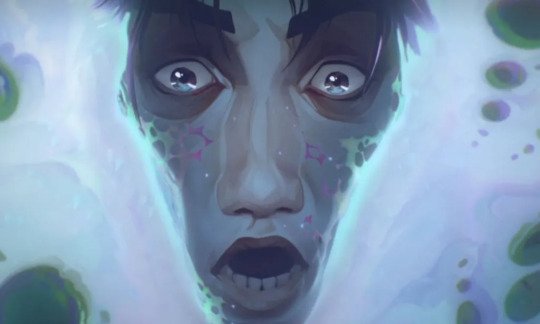

And now here's where She-Ra and Arcane's messages diverge: Hordak is consistently supported and loved by his partner throughout his journey. She doesn't let up when he tries to hide his pain from her.
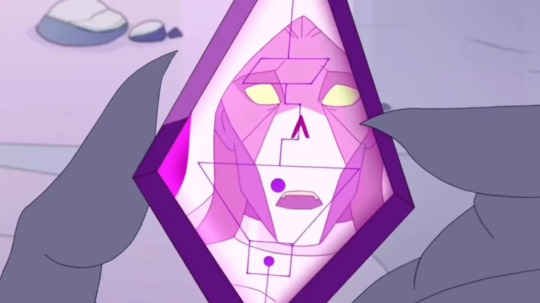

She does NOT tell him that he is wrong to try to "fix" himself and actively helps him do so. She recognizes the validity of how he choses to deal with his condition, which was caused by genetic "imperfections" during the cloning process. But she impresses upon him that he does not deserve the physical pain or mental torment of being a "failure".

Her message was that his imperfections do not limit him or define him. They are a part of life, part of the world, and a part of him, and he is not a failure for having them.
Meanwhile in Arcane, Jayce criticizes Viktor for "wanting to cure what he thought were weaknesses" and specifically mentions his leg and disease. The two things that brought him chronic pain, progressively deteriorating quality of life, and one would ultimately kill him. Also, Viktor never actually expressed that he was ashamed of them. We as the audience are left to assume that's how he feels, because why wouldn't he? What else would a disabled person feel? Not that he is perfectly aware that Piltover's oppression and exploitation of his people likely directly contributed to both those issues. Not that he values himself for his intellect and contributions to Hextech even though society constantly prioritized Jayce. Nope, obviously he feels so bad about it that he tries to turn all of humanity into robots. On top of that, Christian Linke has explicitly said the Hexcore corrupted him and Sky was a manifestation of it manipulating him. So even if he did feel that way before, he's still not at fault for what's been going on.
And I think a key part of this is the mindset of the team who created this show. Was this simply a poorly executed but positive sentiment, or a symptom of ableist bias from a team of 3 able-bodied people? We can harp on Jayce all we want, but ultimately someone designed him this way, and THIS is what I take issue with. Christian also says in the art book explicitly that Viktor fixing his leg and spine make him lose part of his humanity. If this is the logic behind Jayce's monologue, it is NOT positivity. It is a direct shaming of a disabled person's right to choose how they take care of themselves, said by a character who has already violated Viktor's autonomy and wishes, written by a team that equates self-improvement with inferior humanity.
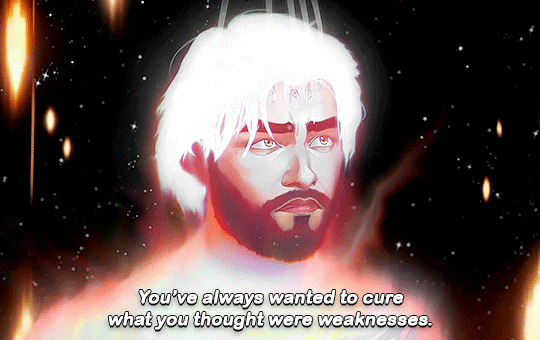
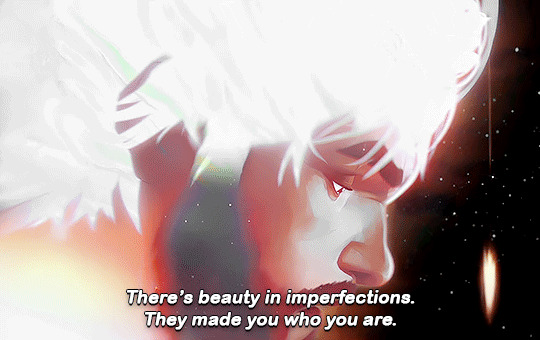
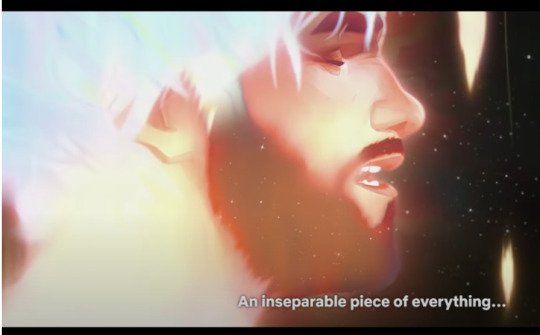

Amanda Overton has repeatedly mentioned she was inspired by She-Ra, which is pretty obvious here. Unfortunately, this isn't the unequivocally positive message she thinks it is, and she missed all the nuance of Entrapta and Hordak's conversations about it. A huge component of why it works in She-Ra is because Entrapta's wisdom comes from her understanding of her own "failures" and "imperfections" due to her autism, and Hordak reciprocates support throughout the show. One of the key members of her development team is an autistic person who provided a realistic view of what an autistic person can be like.
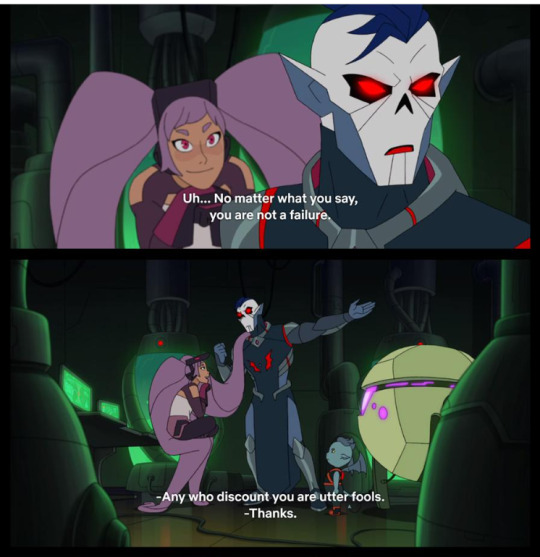
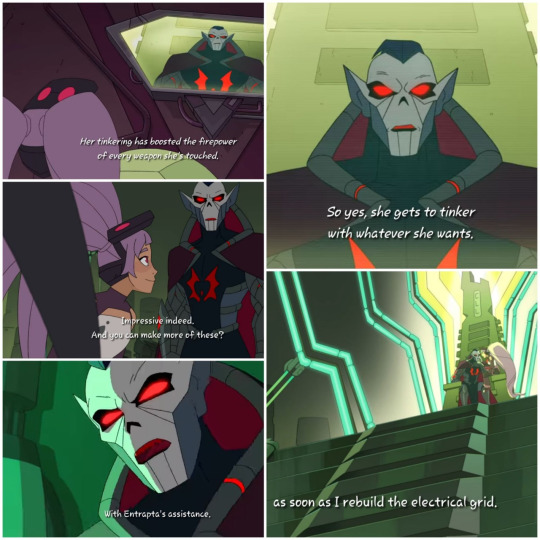
This is two people who understand each other's pain uplifting each other, NOT Entrapta being Hordak's miraculous savior at the 11th hour. Having Jayce need a leg brace for like 5 minutes does not give him ability to understand Viktor's lifelong struggles that were also killing him.
For future seasons, I hope they bring on staff who actually have any idea what they are fucking talking about.
#arcane jayce#viktor arcane#arcane viktor#arcane s2#art of arcane#arcane#arcane criticism#arcane critical#arcane critique#she ra and the princesses of power#entrapdak#entrapta#hordak#ableism#toxic positivity#christian linke#amanda overton#alex yee#shame on you
308 notes
·
View notes
Text
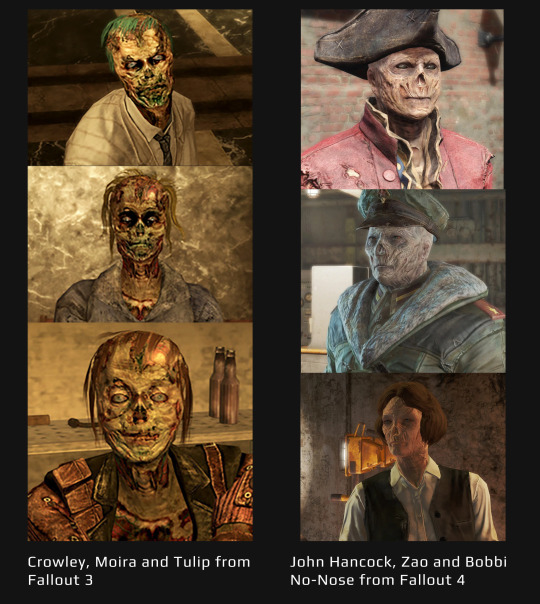
Idk, I like the ghoul character designs in Fallout 3 & New Vegas a lot better than the ones in Fallout 4 and after. They used to look a lot more off-putting. They had peeling skin... they had faces melted out of proportion... they looked sorta asymmetrical... I liked how most of them were cross-eyed too. They had unique appearances that ranged from terrifying to goofy. Each face was a unique abstraction; a ghost of the character's former appearance. It made it really difficult to imagine what they looked like before they were disfigured (Moira could be an exception, but even then I couldn't recognize her after becoming a ghoul!) and it made it really easy to forget that they were still human. People in the wasteland having an implicit bias against them based on their appearance felt believable BECAUSE of how they looked! I could really empathize with these characters having angst toward their condition and toward being treated like they've been afflicted by something that makes them less human.
After Fallout 4 they ironically looked smoother and more... aestheticized. Proportionately, it's as if the bones, muscles and fat beneath their skin remained the same and only the surface was left... scarred? They are much more approachable than the other ghouls in comparison. Hell, they are even able to show facial expressions. To me, they feel more like regular people wearing latex masks. Were they made to be more... romanceable? I see how one could raise that they were modeled to fit the proportions of regular human characters so they could share facial animations, but I feel like that's irrelevant when it comes to texturing and topology. Even if the deformations looked weird, it could've added an uncanniness or uniqueness to their appearance (because the only thing that made them visually distinguishable was their costuming, hence why Hancock and Zao were memorable to me).
Fallout 4's ghouls don't feel as imaginative as 3's or New Vegas because I feel like their appearances are sort of based on a more general consensus on what "ghouls" are supposed to look according to Hollywood. All prior Fallout games were more aesthetically challenging to me, and that made the experience all the better because the ghouls looking a lot more "flawed" made them feel more human to me.
602 notes
·
View notes
Note
Why do you think Levi is subjected to more ableism in the fandom than other characters in the series?
You know, Anon, I’ve wondered the same thing. I’ve often thought about why Levi in particular faces so much ableism from fans, especially compared to other disabled characters in Attack on Titan, like Erwin (who was an amputee) and Hange (who lost an eye). I think one important difference driving the ableism against Levi is how his role in the narrative was tied so strongly to his physical prowess; he was literally hailed as “Humanity’s Strongest.” For many fans, this moniker became his entire identity. When they see Levi at the end of the manga with severe injuries—half-blind, facially scarred, and using a wheelchair—there can be an almost visceral reaction: they feel he’s “lost” what made him exceptional and, consequently, his worth.
Of course, this attitude misses the deeper point of his character. Levi’s true “strength” was never about having perfectly functioning limbs or unmatched reflexes; instead, it lay in his resilience, moral compass, and capacity to protect and care about others despite intense personal trauma. Unlike Erwin or Hange—whose strengths were regarded as intellectual, strategic, or based on charisma—Levi was mythologized for his physical abilities. And our society, unfortunately, tends to place a premium on physical performance; people often conflate physical prowess with overall capability and even personal value. Notice how many superhero stories focus on those heroes being heroic because of their superpowers. When that physical prowess is removed, the ableist assumption is that someone becomes “useless” or “broken”. Erwin and Hange aren’t subjected as much to this particular form of prejudice because their disabilities aren’t perceived as negating their worth.
Furthermore, mobility disabilities in particular are frequently treated with greater bias and discrimination—there is a long history of society perceiving a wheelchair user’s life as diminished or over. Because Levi’s injuries affect him in very visible ways (eye injury, wheelchair use, and facial scarring), the ableist rhetoric becomes more overt: some fans leap to the conclusion that he’s a shadow of his former self, rather than recognizing he’s still the same exact individual who overcame a violent childhood, survived countless battles, and bore tremendous responsibility and loss on his shoulders, all with immense compassion.
What’s especially ironic is that Levi’s endurance and courage remain perfectly intact; if anything, his hardships only reinforce how indomitable his spirit is. Being in a wheelchair doesn��t negate what he’s achieved; it highlights how much he’s lost yet continues to survive, pushing forward with the same mental and emotional fortitude. By dismissing him because of his physical injuries, people undermine the story’s nuanced message: that genuine strength is measured by character, not physical strength.
All in all, I believe Levi faces more blatant ableism because people struggle to separate his core character from his once-renowned physicality. The fact that he ended the story visibly disabled, rather than “bouncing back” with minimal repercussions, forces certain fans to confront their own biases regarding disability. Instead of reading it as an empowering statement rooted in realism—that Levi is still himself, still strong in ways that truly matter—some choose to read it through an ableist lens, judging his worth by his physical condition alone.
#levi ackerman#attack on titan#shingeki no kyoujin#shingeki no kyojin#aot#snk#aot levi#snk levi#aot meta#snk meta#attack on titan meta#shingeki no kyojin meta#asks#anon asks#my thoughts#c: levi ackerman#aot.meta#meta.levi#I’m answering asks in order btw#I’m still working on my other asks#I moved this particular ask up because I thought it was relevant to the current discussions happening in the fandom
100 notes
·
View notes
Text
Tbh I just rlly miss Timmy cause he was a kid who wasn’t a genius, who wasn’t this role model that was fated by some prophecy, that he was a miserable kid, who wasn’t this extremely mature kid but just had a bit more self awareness. Like, don’t get me wrong this ain’t a diss on any other cartoon who had these out of the world kids, their amazing ! But the show had a huge anchor that Timmy had it worse then other kids. While it was made for laughs, it was also semi acknowledged. It’s hard to see “bad” parenting in kids shows usually, especially older ones. it’s almost always redeemed or excused, which to be fair that was the case with fairy odd parents, (except for the new show which I’m so happy that they show both healthy but has problems parenting and actual shit parenting) but there was always some line or base that Timmy’s parents were indeed neglectful, and that Timmy was just a kid. That he didn’t deserve what he was going though, and that Wanda and Cosmo were indeed an escape.
He was not some secret choosen dude who was destined to save the world (ignoring the one special) he was just a kid who had shitty conditions and thus lashed out. He was just a kid who tried to make his life better. I feel like a lot of kids when they were younger related to that, to the control Timmy turner wants over his life and he constantly tries to get, Ya know LOL. And I feel like sometimes- when you constantly see these almost super human teenagers who the gods themselves have chosen to have this adventurous life with their friends and family, Timmy almost felt like this grounded “anyone who’s depressed can have this.” Look not every kid was a gifted kid or had an extremely tragic backstory. A lot of kids are like Timmy, just an average kid with shitty parents. It doesn’t make him this great, talented, person though and tbh I love him for that! I love that at the end of the day he was still a kid tryna make the world better, and that yea he was selfish sometimes but whenever people had a problem, he’d unwish it away. I love Hazel hell I even have opinions on Chole, but the reason Timmy is my favorite (besides the obvious generational/Nostalgia fueled bias) is cause he shows what a average kid is like, one who deals with shitty parents and has a hard time on school. But he still stands up :]

#fairly oddparents#fop#timmy turner#fairly odd parents#cosmo#wanda#fairly odd parents a new wish#fopanw
224 notes
·
View notes
Note
from a non-academic, i find parts of comphet to be useful (heterosexuality becomes compulsory when you’re raised in a heterosexual society) but the foundations . suck. what do we do with theories like this, that have touched on a truth but also carry a lot of garbage? can we separate the truth from the founder?
i have to be slightly pedantic and say that i don't think rich's essay is an example of this phenomenon. my central issue with her formulation is its bioessentialist assumptions about human sex and therefore also sexuality. if i say "capitalism includes economic mechanisms that enforce heterosexual behaviour and exclude other possibilities", then what i mean by "heterosexual" is plainly not the same as what rich means—and for this reason i would seldom formulate the statement this way, without clarifying that i am talking about the enforcement of heterosexuality as a part of the creation and defence of sex/gender categories themselves. so rich and i do not actually agree on the very fundamental premises of this paper! rich was not the first or only person to point out that economic mechanisms as well as resultant social norms enforce heterosexual pairings; i actually don't even think the essay does a very clear job of interrogating the relationship between labour, economy, and the creation of sex/gender; she means something different and essentialist to what i mean by sex and sexuality; and i think her proposed responses to the phenomenon she identifies as 'compulsory heterosexuality' are uninteresting because they mainly propose psychological answers to a problem arising from conditions of political economy. so, in regards to this specific paper, i am actually totally comfortable just saying that it's not a useful formulation, and i don't feel a need to rescue elements of it.
in general, i do know what you're talking about, and i think there's a false dichotomy here: as though we must either discard an idea entirely if it has elements we dislike, or we accept it on the condition that we can plausibly claim these elements and their author are irrelevant. these are not comprehensive options. instead, i would posit that every theory, hypothesis, or idea is laden with context, including values held and assumptions made by their progenitors. the point is not to find a mythical 'objective' truth unburdened by human bias or mistakes; this is impossible. instead, i think we need to take seriously the elements of an idea that we object to. why are they there? what sorts of assumptions or arguments motivate them, and are those actually separable from whatever we like in the idea? if so, can we be clear about which aspects of the theory are still useful or applicable, and where it is that the objectionable elements arise? and if we can identify these points, then what might we propose instead? this is all much more useful, imo, than either waiting for a perfect morally unimpeachable theory or trying to 'accept' a theory without grappling with its origins (political, social, intellectual).
a recent example that you might find interesting as a kind of case study is j lorand matory's book the fetish revisited, which argues that the 'fetish' concept in freud's and marx's work drew from their respective understandings of afro-atlantic gods. in other words, when marx said capitalists "fetishise" commodities or freud spoke about sexual "fetishism", they were each claiming that viewing an object as agentive, meaning-laden in itself (ie, devoid of the context of human meaning-making as a social and political activity) was comparable to 'primitive' and delusory religious practices.
matory's point here isn't that we should reject marx's entire contribution to political economy because he was racist, nor is it that we can somehow accept parts of what marx said by just excising any racist bits. rather, matory asks us to grapple seriously with the role that marx's anthropologically inflected racism plays in his ideas, and what limitations it imposes on them. why is it that marx could identify the commodity as being discursively abstracted and 'fetishised', but did not apply this understanding to other ideas and objects in a consistent way? and how is his understanding of this process of 'fetishisation' shaped by his beliefs about afro-atlantic peoples, and their 'intelligence' or civilisational achievements in comparison to northwestern europeans'? by this critique matory is able to nuance the fetish concept, and to argue that marx's formulation of it was both reductive and inconsistently applied (analogously to how freud viewed only some sexuality as 'fetishistic'). it is true in some sense that capital and the commodity are reified and abstracted in a manner comparable to the creation of a metaphysical entity, but what we get from matory is both a better, more nuanced understanding of this process of meaning-making (incl. a challenge to the racist idea of afro-atlantic gods as simply a result of inferior intelligence or cultural development), and the critical point that if this is fetishism, then we must understand a lot more human discourse and activity as hinging on fetishisation.
the answer of what we do with the shitty or poorly formulated parts of a theory won't always be the same, obviously; this is a dialogue we probably need to have (and then have again) every time we evaluate an idea or theory. but i hope this gives you some jumping-off points to consider, and an idea of what it might look like to grapple with ideas as things inherently shaped by people—and our biases and assumptions and failings—without assuming that means we can or should just discard them any time those failings show through. the point is not to waste time trying to find something objective, but to understand the subjective in its context and with its strengths and limitations, and then to decide from there what use we can or should make of it.
561 notes
·
View notes